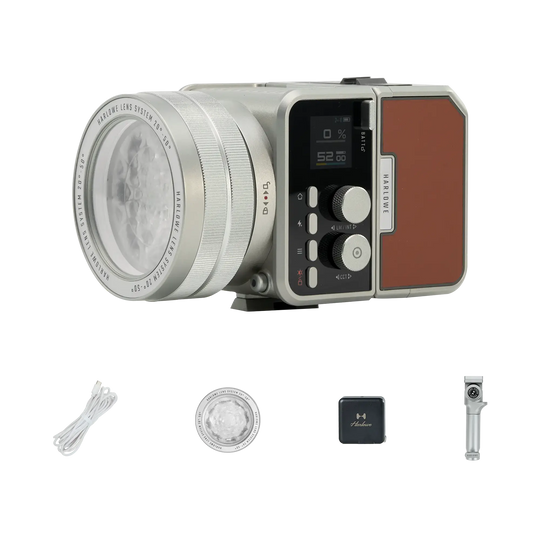Unleash Your Creativity: Discover the Hottest Photography Lighting Gear of 2025!
Lighting is the backbone of photography; it shapes the mood, highlights details, and can transform an ordinary scene into something extraordinary. As we step into 2025, the world of photography lighting continues to evolve, embracing innovative technologies that enhance creativity and streamline workflows. Whether you’re a seasoned professional or an enthusiastic hobbyist, understanding the latest trends in photography lighting is essential for achieving stunning results. The right equipment not only elevates your images but also allows you to explore new creative avenues. With this in mind, let’s dive into the exciting realm of photography lighting for 2025 and discover what tools can help unleash your creative potential.

Understanding Photography Lighting Basics
Before we delve into the latest trends and must-have equipment, it’s crucial to grasp the foundational concepts of photography lighting. At its core, lighting can be divided into two categories: natural and artificial. Natural light, sourced from the sun, varies throughout the day and is a favorite among photographers for its soft, dynamic qualities. On the other hand, artificial light provides photographers with more control and versatility. Understanding how light interacts with your subject is vital; it influences composition, texture, and atmosphere. For instance, the golden hour—shortly after sunrise or before sunset—offers a warm, diffused glow that enhances portraits and landscapes alike. Conversely, harsh midday sun can create stark shadows. Learning to manipulate both natural and artificial light is key in developing your unique photographic style.
Top Trends in Photography Lighting for 2025
The photography lighting landscape is witnessing exciting innovations as we head into 2025. One of the most significant trends is the rise of LED technology. LED lights are not only energy-efficient but also incredibly versatile, offering a wide range of color temperatures and intensities suitable for various shooting environments. Additionally, portable lighting solutions are becoming increasingly popular. Photographers are opting for lightweight, compact lights that are easy to transport, making it simpler to capture high-quality images on the go. Furthermore, smart lighting systems are emerging, enabling photographers to control their lights through mobile applications. This trend not only enhances convenience but also opens up new possibilities for creating dynamic lighting setups that can adapt to different shooting scenarios. As these technologies advance, photographers are more empowered than ever to experiment and innovate in their work.
Must-Have Lighting Equipment for Every Photographer
As we explore the essential tools for photographers in 2025, certain pieces of lighting equipment stand out for their versatility and functionality. First and foremost, a quality softbox is essential for diffusing harsh light and creating a flattering glow for portraits. Additionally, a reliable LED panel can serve multiple purposes, from providing continuous light for video to enhancing still photography with adjustable color temperatures. For those who enjoy outdoor photography, portable flash units are invaluable for filling in shadows and adding dimension to images. Finally, consider investing in reflectors, which can redirect natural light and improve lighting conditions without the need for bulky equipment. These tools collectively form a robust lighting toolkit that can adapt to various shooting styles and environments, ensuring photographers are prepared for any situation.
Choosing the Right Lighting for Different Photography Styles
Different photography styles require tailored lighting setups to achieve the desired effect. For portrait photography, soft, diffused light is key to capturing the subject's features in a flattering manner; using a softbox or ring light can help create that perfect look. Landscape photography, on the other hand, often benefits from natural light, particularly during the golden and blue hours. However, a well-placed flash can help illuminate foreground elements, adding depth to the shot. Product photography demands precision; a combination of diffused light and reflectors can emphasize details and eliminate distracting shadows. For event photography, versatile portable lighting solutions enable photographers to adapt quickly to changing conditions, ensuring they capture every moment beautifully. Understanding the nuances of how different lighting setups can enhance various styles is crucial for photographers looking to elevate their work in 2025.
Unlocking Creative Potential with Lighting Gear
In conclusion, selecting the right photography lighting gear in 2025 is essential for any photographer aiming to enhance their creativity and produce stunning images. By understanding the basics of photography lighting, staying abreast of current trends, and investing in versatile equipment, photographers can unlock new creative possibilities. Whether you’re experimenting with LED technology or mastering the art of natural light, the tools available today are designed to help you bring your vision to life. Embrace these innovations, explore your creativity, and watch as your photography transforms in the light of 2025!








